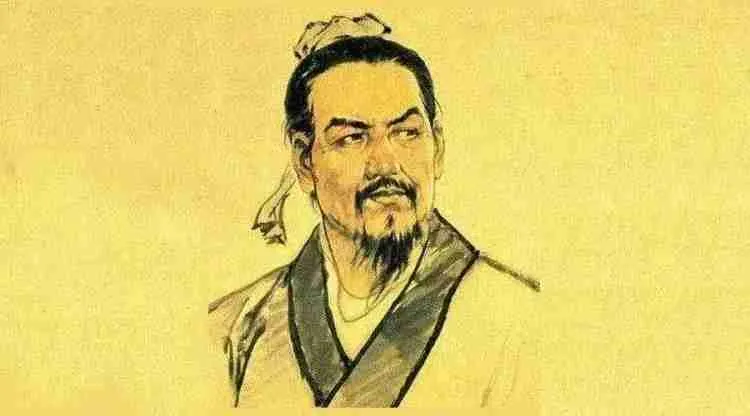Legalism or the School of law refers to one of the 4 main schools of thought, also called the Hundreds School of Thought, which was developed during the Warring States Periods and the Spring & Autumn Periods spanning from the 6th Century BCE to the 3rd century BCE. This system of belief and ruling came to be at the same time as the other beliefs such as Taoism, Confucianism, and also Buddhism.
Legalism Definition China
Legalism can be defined as the pragmatic political system or philosophy that ruled ancient Chinese culture and upheld the Rule of Law as one of the leading ethical systems. It was also used as a means through which the ancient Chinese societies were organized.
The Legalists, therefore, argue by the Rule by Law system of rule. Like other systems and beliefs, legalism heavily criticized the Confucian belief in the Rule by Virtue. This is especially true because the legalists believed in and held on to the utilitarian views of human nature, and as a result, this system received an incredible amount of support in ancient China, especially among the new and emerging middle-class landowners. According to the legalists, their beliefs were a compilation of belief systems taken from the already existing ideas along with the systematic system that was formulated by the philosopher called Han Fei.
The other legalist belief that stands out is the fact that legalism provided the important theoretical foundation for a more centralist rule that ruled the Qin dynasty. For the most part, legalism was seen as political thought. Unfortunately, there was no actual mechanism for limiting and checking the powers of the despotic monarchs, which was the case because the legalist beliefs were quite different from the modern rule of law.
Legalism History
Legalism is considered to have been the central governing idea for the Qin dynasty, and it is the system that eventually culminated in China’s unification under the rule of the 1st Emperor known as Qin Shi Huang, who reigned between 247 and 210BCE. Legalism is, therefore, thought to have originated from the administrative reforms of the leader known as Shang Hang. Shang Hang was hired by Duke Xiao of the Qin Dynasty in 361BCE to allow for the transformation of the weak and backward people of Qin, resulting in a stronger and more progressive state of Qin. Shang borrowed from the different reforms in the other Chinese states, enacting stronger sweeping changes. To this end, Shang Yang enacted what is now known as the Book of Law of Fajing in the 407BCE, an enactment that meant the addition of the rule giving any Chinese person who was aware of a crime but didn’t report the crime to the government to face the same kind of punishment as the person accused of the wrongdoings.
Shang’s Rule of Law meant consideration of the fact that loyalty to the state was above loyalty to the family. His system also stripped away nobility and lands from the rulers’ ranks, and this meant that all the aristocrats were equal to the common people. He was also behind the setting up of a centralized government.
The Confucian books were destroyed and burned under legalism in an attempt to reduce the hold and the influence of Confucian thoughts. There was also the division of the army into 20 military ranks; all awarded based on their success during battle. And as a remedy for the shortage of labor, Shang’s system encouraged the cultivation of unsettled lands and also the wastelands. But he discouraged commerce but allowed the immigration of Chinese people from different states.
The other leaders that encouraged legalism include Shen Dao, Shen Buhai, Li Si, Xun Zi, and also Han Fei.
Who Founded Legalism?

Legalism was founded by Han Fei from the state of Qin. He drew his teachings and belief system from the Confucian belief by Xunzi, developing the philosophy that because of human’s inherently evil nature, it was necessary to have laws to not just control, but also to punish the persons in the wrong to ensure social order.
When Did Legalism End?
Legalism was the effective belief system during the Qin Dynasty’s time which was necessary because there was a lot of war at the time. However, when the Qin Dynasty fell in 206BCE, and the Han Dynasty took over control, and with the opening of the Silk Road, legalism maintained a hold of social order until 141-87BCE when Emperor Wu abandoned Confucianism over Legalism. His decree made legalism illegal to his followers, and no one holding onto the legalism beliefs would hold office in the Han Dynasty.
Why Is Legalism Important?
Legalism allows for the control of the Chinese population. It created a high sense of social order. And the best part is allowing for a better way of addressing the societal systems, including superiors, children, women, and also servants. Legalism also came up with the criminal laws necessary for dealing with rule-breaking, including murder and theft.
It also created a more organized government.
What Are The Main Beliefs Of Legalism

At the core of legalism is the belief that human beings are inherently selfish and that unless people are forced to, no one will really ever willingly sacrifice themselves for others. So, according to the legalism precepts, if it’s in a specific person’s very best interest to kill another person, they will do that. So, to prevent this from happening and to prevent deaths, the rulers would have to create a set of rules to direct the humans’ inherent inclinations towards self-interest and towards the good of the state.
In legalism, morality was of no concern to the philosophers because they believed that morality didn’t play any role in people’s decision-making processes.
In other words, legalism laws were meant to direct the human inclinations to a direction that would allow for actions that were beneficial to all of humanity.
Principles or Components of Legalism
As mentioned above, Han Fei was one of the biggest proponents and also contributors of the discipline. Han Fei was, interestingly, one of the disciples of the Confucian times, and Xun Xi then developed his ideas from the earlier believers of legalism such as Shen Buhai, Shang Yang, as well as Shen Dao. All these were important authorities who helped to legitimize the legalism beliefs while also creating the political theories that legalism was based on. The primary legalism principles are as follows:
- Law of Principle (Fa) – this is a law code that outlines the requirement that the code or law must be written clearly and then made public. According to this principle, all the Chinese people were equal below the law, and that the laws would reward all that obeyed the law, and the lawbreakers would be punished severely. This system would, therefore, guarantee that the actions taken by all in society were predictably systemic. The ruling system was the one running the state, which means that not even the rulers of the state were above the law. The successful enforcement of the law meant that even the weak rulers would be able to rule strongly.
- Method, Art, or Tactic (Shu) – this principle represents the bureaucratic administration system that is under the overall control of the ruler who enforces the laws while also performing the important tasks involved in running the state. The ruler of the state would, therefore, be allowed to employ any special techniques that would ensure that all the administrators carry out their required duties but not abuse their positions of power. The emperor would also maintain aloof the balance of power, concealing their personal intentions, all while making sure that the laws are the primary model of human behavior.
- The legitimacy of Power or Charisma (Shi) – according to this legalist principle, it is the legal position of the ruler rather than the ruler himself, who holds authority and power. And so, the ruler should be able to practice emptiness, non-action, and acquiescence to be able to allow for the natural order of things in their rule.
Legalism Symbol

The Great Wall of China is the most important form of symbolism for and in legalism. It is believed that it is because of the principles of legalism – Shi, Fan, and Shu that the greatest strides like building the Great Wall of China were possible.
Legalism Holy Book
Legalism’s important or Sacred Text is the Han Heizi which translates to Basic Writings. This text instructed the rulers of the need to strengthen their states through the enforcement of strict laws such as severe punishments, all in the hope that the system would help in solving the political issues that burdened China at the time.
How Many Followers Does Legalism Have?
There are about 10,000 Legalists in the world today.
Who Believed In Legalism?
Han Fei was the first and the biggest believer of the Legalist beliefs, but it was later on believed and followed by the rulers of the Qin dynasty.
The primary philosophers who influenced the implementation of Legalist beliefs include Shang Yang, Hanfeizi, and Li Si.